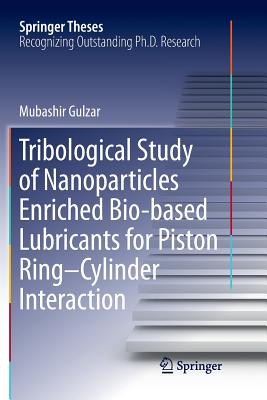Friction and Wear in Metals
Al-Samarai, Riyadh A., Al-Douri, Yarub
- 出版商: Springer
- 出版日期: 2024-03-30
- 售價: $8,190
- 貴賓價: 9.5 折 $7,781
- 語言: 英文
- 頁數: 334
- 裝訂: Hardcover - also called cloth, retail trade, or trade
- ISBN: 9819711673
- ISBN-13: 9789819711673
-
相關分類:
材料科學 Meterials
海外代購書籍(需單獨結帳)
相關主題
商品描述
This book focuses on tribology in manufacturing processes from the viewpoint of sliding friction fundamentals, the use of lubricants to control friction processes such as machining, drawing, rolling, extrusion, abrasive processes, and processing at micro and nanoscales. To study tribological behavior, it is essential to know the methods of measuring and describing the surface shape and roughness. The friction and wear, their corresponding coefficients, and their main mechanisms are described, including stick-slip effects, adhesion, and plowing. Adhesive, abrasive, erosive, and erosion-corrosion wear mechanisms. Friction-wear relationships are elaborated, and wear maps are presented. Surface interactions depend on the contacting materials and surface shape. It is a function of the production process and nature of parent materials that are found to be rough, where roughness is characterized by asperities of varying amplitudes and spacing. Surface interactions are dependent both on the contacting materials and the shape of the surface. The distribution of the asperities is directional when the finishing process is direction-dependent, such as turning, milling, etc., and homogeneous for a non-directional finishing process like lapping, electro-polishing.
作者簡介
Prof. Dr. Riyadh A. Al-Samarai from the University of Samarra in Iraq established a BSc program in Electromechanical Engineering and submitted a study of the MSc program in Electromechanical Engineering at the University of Samarra. Al-Samarai is the Director of the Editorial Board of the Samarra Journal of Engineering Science and Research. He has received many awards, including the Distinguished Researcher Award in Malaysia, the Innovation Award in Iraqi Engineering Sciences, and others on the Iraqi university level.
Prof. Dr. Yarub Al-Douri from the Piri Reis University in Turkey has initiated Nanotechnology Engineering M.Sc. Program and Nano Computing Laboratory, the first in Malaysia. He is a Fellow of the European Academy of Sciences. He has received numerous accolades including winner of IAAM Scientist Award by the International Association of Advanced Materials, Sweden, World's Top 2% Scientists by Stanford University, USA 2023-2020, OeAD Award, Austria, Japan Society for the Promotion of Science (JSPS) Award, Asian Universities Alliance (AUA) Award, Iraqi Forum for Intellectuals and Academics Award (IFIA) and TWAS-UNESCO Associateship (Twice) Award. Al-Douri is editor-in-chief of Experimental and Theoretical NANOTECHNOLOGY research and associate editor of Nano-Micro Letters (Springer, IF=26.6, Q1). He was Head of the Nanomaterials Department, Secretary of the Physics Department; and Department of International Networking and Collaboration, Initiative of the MSc Program in Nanotechnology Engineering, the first in Malaysia; Founder of the Nano Computing Laboratory (NCL) in Malaysia; Founder of Applied Materials Laboratory (AML) in Algeria.










